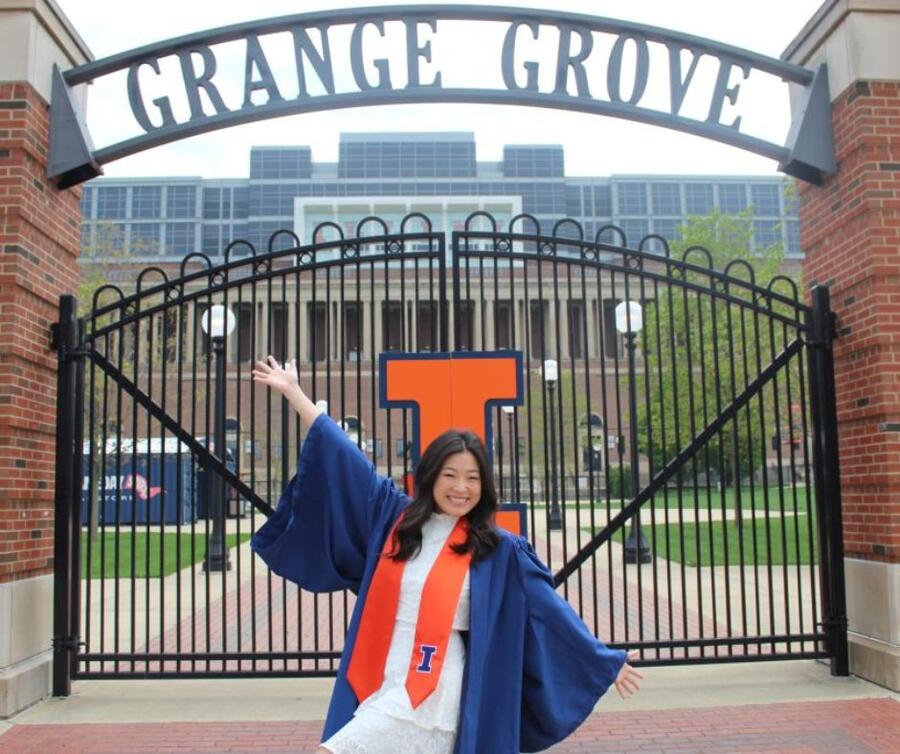I came from a really small high school and going into college I knew that I still wanted a close-knit feel. One of the Illinois counselors had come to my high school to talk about Applied Health Sciences and the Interdisciplinary Health Sciences major really stuck out to me because there’s an internship practicum experience built into the curriculum during your senior year. I worked as a Prenatal Intern at Promise Healthcare, one of the local clinics in the community, mainly for individuals who are underinsured, and I enjoyed the blend of science and humanities, and thought it would be a really interesting foundation as a pre-med student.
At Illinois I was able to interact with so many interesting groups of people. I was a teaching assistant and also part of a special merit program which offered extra discussion sections outside of the normal core schedule. So, to be able to, not only benefit from those resources, but then be able to give back to students and provide them with resources, was great. I was able to relate with them on what it’s like to struggle in a class, and tell them that it’s normal, and that there is help out there. I think all these interactions I had with my peers and incoming students were really special.
Starting at the end of my freshman year I also became a campus tour guide. We had visiting scholars one time from China, and I was able to take them around campus, and use my Mandarin skills a little bit to connect with them. I think it’s special to see families come on campus, because some of them might have many generations of alumni, and for others it’s their first child to go to college. That was the boat that I was in as a first-generation student, and I always loved connecting with people in that sense.
I was always keenly aware of my identity when I came into college. As a first generation, low-income student, I think something that’s often not talked about enough is the role that financial aid packages play in someone’s decision to come to college. Without the financial aid resources, I wouldn’t have been able to have the experiences I’ve had or get my degree, or meet really good friends, and build the good relationships that I did at Illinois.
I knew I wanted to take a gap year before applying to medical school, and I wanted to work in research. Because of my research experience with the Exercise Psychology Lab within AHS I knew I wanted to work with human subjects and maybe an older adult population. I visited Boston last summer and met up with an alumnus from AHS who was currently in medical school. We talked about our goals and what it is I wanted out of my gap years, and I think it naturally made sense that if I wanted to do research, I would come to a city that’s the biomedical research hub. And, again, I wanted to work with people directly, and I think a lot of the skills, both soft skills and technical skills I gained my research experience, led me into my current clinical research role in the neurology department at Massachusetts General Hospital.
I love that the research I do is impactful and necessary. I see a need for it every day and I’m able to learn from some of the leading professionals in the field. Some days I would definitely say I feel a little out of place, but everyone that I’ve come across has been very willing to help lead and collaborate and take time out of their days to mentor me.
As you’re wrapping up college, it’s always nice to reach out to alumni, I know I definitely did. I shared earlier how that helped me think about what kind of roles I want in my gap years. And I know there are some people in undergrad now who have reached out to me asking me for advice as well, and it’s always nice to know that you have that network of people to connect with.
